Dealing with IBD is hard enough, much less while you are pregnant. Even more so, dealing with a diagnosis of IBD before the baby arrives. Today we want to pull back the curtain and discuss what it’s like to be diagnosed with IBD while pregnant.
What It’s Like To Be Diagnosed With IBD While Pregnant
Early warning signs
It was the beginning of the year, January 2020. A newly isolated virus was ravaging Asia and threatening the United States and I was about 22 weeks pregnant with our third child, a baby girl.
My pregnancies had been very boring thus far, straightforward and easy for the most part. I was thankful for that and thankful to steward another life in my womb. However, this one was different.
I had anticipated some constipation and feeling “off,” but this time was a bit more extreme. My constipation was coupled with blood…but not just hemorrhoid blood (which I was also accustomed to). This was heavier bleeding. And I was passing clots the size of a quarter.
I wasn’t all that concerned, but did want to casually mention it to my OB/GYN. And when I did, she was immediately uneasy. I perked up and felt a rush of adrenaline. “Am I okay? Is the baby going to be okay?,” I asked. She assured me that I was in good hands. And this was important to further investigate to keep me and the baby safe.
Knowing something is wrong
I was immediately referred to a gastroenterologist for a full workup. I was poked and prodded and sent for further examination via a flexible sigmoidoscopy to determine a diagnosis. And I will never forget how at every step of the process, every person assured me it was nothing and not to worry…
But I knew something was wrong. I could feel it. I knew my body was struggling more than normal this time. And I was exhausted, I was crazy anxious, and everything felt hard.
I spent the next few weeks just…worried. Worried my life wouldn’t be the same. Worried I was endangering my unborn child. And worried I wouldn’t be able to parent my other children.
What it’s like to be diagnosed with IBD while pregnant
Finally, I was able to get into the gastroenterologist for my flexible sigmoidoscopy. I was not a candidate for a colonoscopy at this point because I was just over 30 weeks pregnant and undergoing anesthesia might endanger the baby. So, a “flex sig” while awake is what we did!
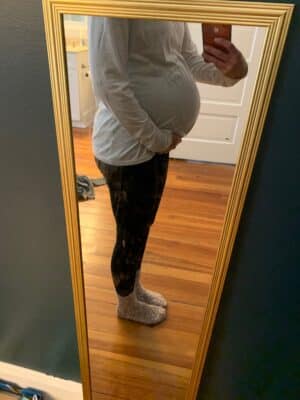
The day of the procedure was quite comical.
I was required to clear my bowels via an enema, twice. I’ll spare you the details, but I will say that when a salt solution meets an ulcerated colon (twice) the individual is in quite a lot of pain! I may or may not have been writhing on the bathroom floor and not able to sit while on my way to the hospital. If you don’t laugh, you’ll cry right?!
yle=”font-weight: 400;”>>You would also be hard pressed to find a more hilarious and odd scene than my experience in the procedure room. I was hooked up to the machines, squeezing my nurse/coach’s hand, staring her in the eyes and leaning on her support while the doctor had a camera up my tush, I could see my intestines on the screen, and the other nurses were blaring Britney Spears and dancing. That is not something I will soon forget!
<span class=”yoast-text-mark” style=”font-weight: 400;”>>Just to add more drama to the moment, I was also hooked up to a baby monitor connected to maternal fetal medicine. So not only am I just generally concerned about my body, I’m also very concerned about how the baby is handling this as well.
A mere half hour after the doctor assured me it was nothing, he began to change his tune. He started showing me the ulcerations on the screen and explaining how it was consistent with proctitistyle=”font-weight: 400;”> and likely Ulcerative Colitis. My heart sank a bit and I began to prepare myself for a tough road ahead.
Managing IBD throughout delivery and postpartum
>I was immediately prescribed Mesalamine suppositories to help calm down the inflammation and was referred back to my GI clinic for monitoring. My monthly check-ins with the OB/GYN were bumped to biweekly and we waited.
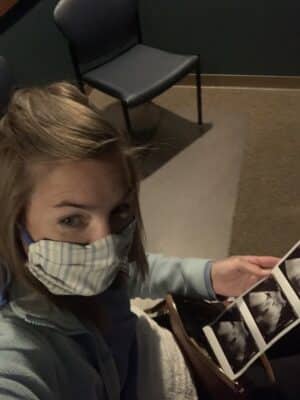
We monitored my body and the baby’s progress and we hoped for the best. For now, I seemed to be responding to the medications and the baby was doing well. If all went well, we planned for a full colonoscopy and endoscopy about 3 months postpartum to determine what exactly we were working with.
The last couple months of pregnancy were still so wrought with worry and anxiety. I was a mess. I was afraid of my body, I was afraid to deliver the baby. And I was afraid what postpartum would bring. But, I also knew I had to take charge. I had to protect this baby girl.
So, I went searching for a professional. I sought out the best names in IBD and I learned and asked questions. I talked with Ashley, the owner and founder here at the Crohn’s and Colitis Dietitians and she helped me find reputable places to look at and ways to learn about my disease.
These steps helped me feel empowered and encouraged as I faced delivery and postpartum.
Labor and delivery with IBD
Labor and delivery were very swift and intense. My husband may have driven like a maniac trying to avoid a side of the road delivery! Baby girl was moving so quickly we were not a candidate for an epidural, which brought a few more worries for me.
>All went well and the baby was born with no complications and for the first time in 9 months, I felt my body truly take a deep exhale. I felt a sense of relief. Don’t get me wrong, I felt worn out and depleted, but that sense of relief was palpable.
>I was really worried about my postpartum journey and what that might entail. So I really focused on replenishing my body. I focused on nutrient dense foods, consistently taking a high quality multivitamin, drinking fluids, resting, taking my medications, and asking for help.
I felt like my recovery from pregnancy and delivery went really smoothly. My body took a little bit longer than (my) normal, but inflammation did go back down and my body started to feel better. The colonoscopy at 3 months postpartum confirmed the Ulcerative Colitis diagnosis but revealed significant improvement as well!
e=”font-weight: 400;”>>Even though my pregnancy was full of worry and ups-and-downs, it was a beautiful experience and it allowed me to have another sweet baby girl. All was worth it!
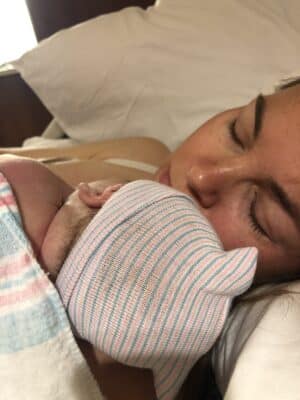
Key takeaways
>Many people are concerned about the potential for IBD interfering with their family planningtyle=”font-weight: 400;”> or at least altering it a bit. While, yes, that is a potential, you can have a wonderfully healthy pregnancy and delivery!
>If you are facing a diagnosis, thinking about becoming pregnant, or navigating a diagnosis while pregnant we are well-versed in the road ahead and would love to support you in the process. Reach out here to book a no-pressure call to discuss ways we can help!

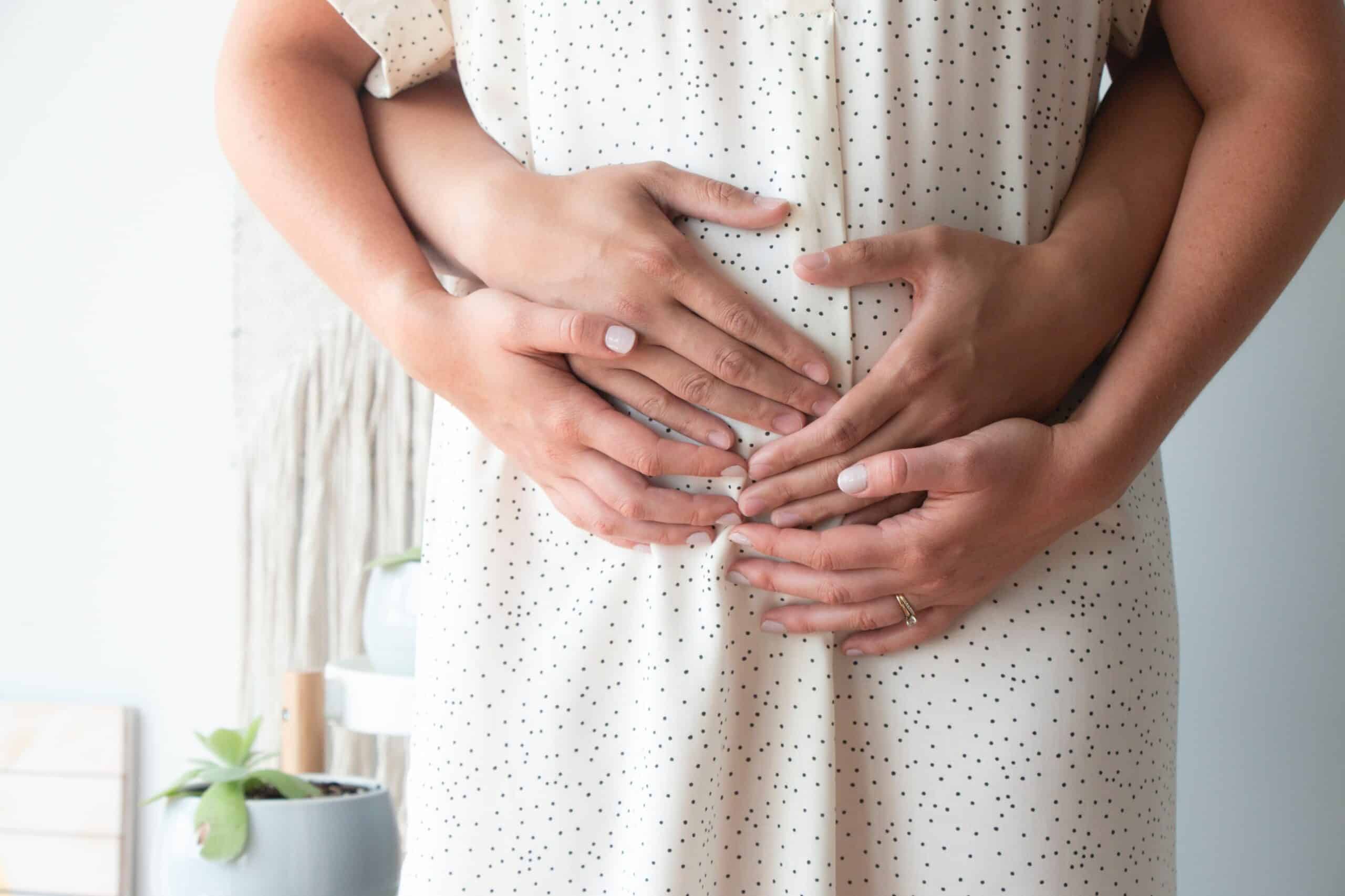
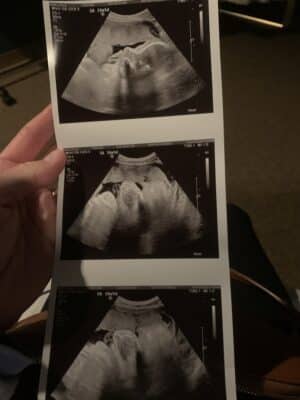




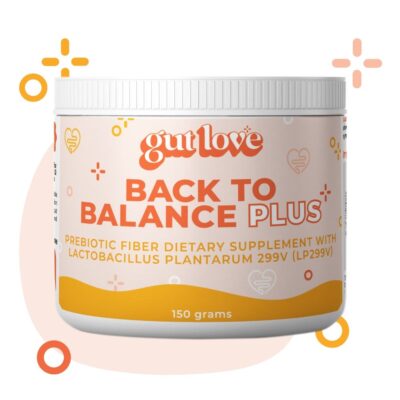
Amazing & encouraging story!
I am on the flip side of things but shared a similar concern regarding IBD getting in the way of family planning. My husband had a severe flare up with UC a year ago which delayed our ability to start a family as he was hospitalized several times; however, so thankful he began regaining health after a few months with C&CD. We’re 22 weeks pregnant with our first babe now! I am incredibly grateful to God for this dietitian and will continue to direct friends and fellow IBD sufferers here.